Before I was a writer for StarCityGames.com I used to be a casino dealer in
Louisiana. I learned the table games. Blackjack, Roulette, Craps, Baccarat,
and all the silly carnival games like Let it Ride.
I was passionate about my craft. I knew how to count cards and wanted to
identify someone trying to do so, even while dealing myself. A dark film
starring Clive Owen called Croupier
further pushed my fire toward catching a potential would-be counter.

And wouldn’t ya know it… I did catch a guy.
But the pit boss didn’t care. The table limits of max $500 were in place
where the possible consequences were suppressed. All in all, it wasn’t
worth making a scene, even if the player had a small edge.
”
Face forward, deal the cards from left-to-right, pick up the losing
bets from right-to-left.”
I was taught to deal Blackjack so the game was protected. Make sure nothing
crazy happens and the rules in place will take care of everything else.
Never turn your back on the rack so someone could swipe some chips. Now,
I’ve never heard a story of a gambler grabbing at chips from a dealer’s
rack. That’s likely because casinos teach their dealer to never turn their
backs on the rack. They care less about potential counting and more about
prevention of any opportunistic thoughts.
“An ounce of prevention is worth a pound of cure.”
Everyone knows that cheating is wrong. This isn’t what this article is
about. I’ve addressed this
before
. This article is about Game Protection and how you can preemptively avoid
getting into a bad situation through good habits.
Hold Your Hand Up
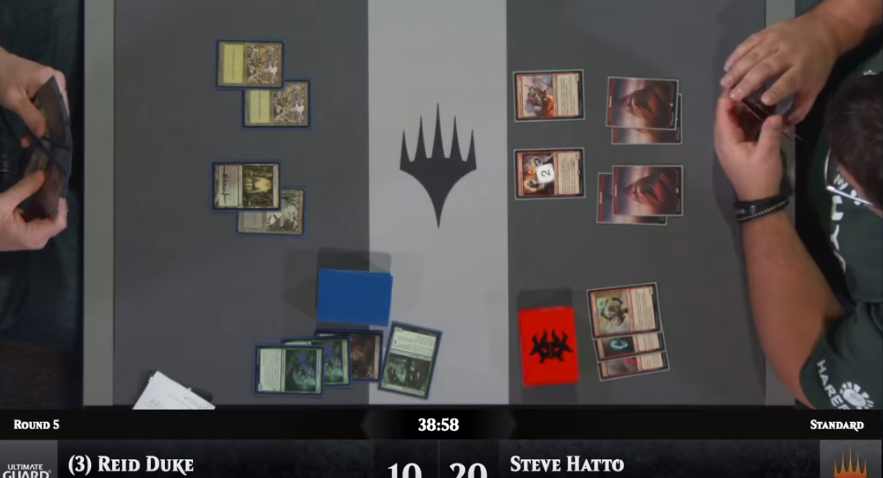
I used to lean forward when I played Magic. It’s a bad habit. Don’t do it.
Hold your hand close to a 90-degree angle. Protect it. Reid Duke here is
notorious for hiding the contents of his hand very well, even to the point
that coverage sometimes can’t catch a glimpse of what’s going on.
Optimal form for playing professional Magic is like the grown folks say:
sit up straight. Heck, it’s even better to lean backwards than forwards if
you must do one or the other. If you need to lean across the table to look
at your opponent’s hand, do so after placing yours facedown. When casting a
spell, make sure to select it individually from your hand instead of
placing it on the battlefield with your hand.
Loop Your Bag
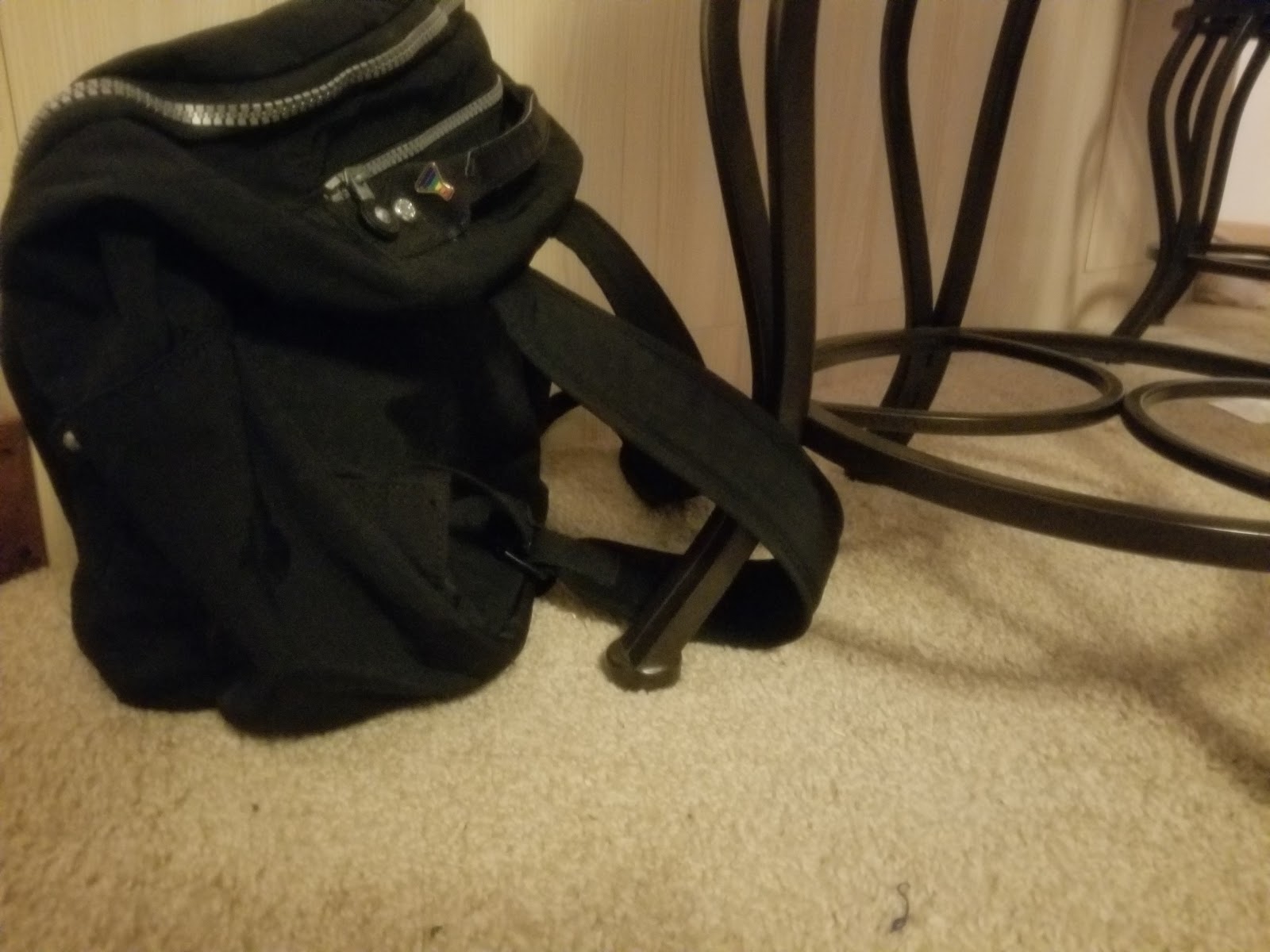
Whether you’re between matches or in a match, your bag of belongings should
be protected. Not on the table or next to your seat but tied down somehow.
I’ve found the easiest and safest way to ensure that my bag won’t be nabbed
is to loop my backpack strap underneath the leg of the chair that I’m
sitting in. Once you pull back your chair to leave you should feel and
notice your bag.
Putting your foot in the strap also does the trick while ensuring that you
won’t leave the table without it. Even if you’re between rounds eating or
just chatting, it’s a good habit to loop your bag.
Keep The Fatigue Of Your Sleeves Consistent
Today’s public service announcement: swap your SB and
MD sleeves every few rounds, especially if you have darker color non-matte
ones. Opponent received a GL today bc I pulled all their SB cards from
their deck before G2.— Ari Lax (@armlx) November
18, 2018
Ari makes a great point here. After a few rounds of a tournament, it’s a
good idea to take fifteen cards from your maindeck and switch them with
fifteen cards from your sideboard. Since your maindeck cards get shuffled a
lot more than your sideboard cards, they’re more prone to scratches on the
back or to getting dog-earred corners.
I used to shuffle my 60 card maindeck and fifteen-card sideboard together
periodically between tournaments to make sure the sideboard cards got at
least some wear on them. While that was a reasonable habit to do between
rounds, Ari’s tip is a better solution.

This applies mostly to smooth, solid-colored sleeves where it’s easy to
notice differences between them. Matte sleeves with their own texture do a
good job at hiding wear differences between sleeves.
Just makes sure that those fifteen cards don’t have a pattern among them.
Fifteen clean-backed lands will get you in trouble. Select a good mix of
lands and spells to switch out for the sideboard cards.
Talk To A Judge Away From The Table

Whether it’s a small rules question or that you believe your opponent has
committed an error, it’s within your right to speak to a judge away from
your match.
If it’s about the functionality of one of your cards, you won’t give your
opponent any information about the contents of your hand or your intent of
future plays. The judge will be happy to offer a minute or two time
extension for the call depending on the length.
Have Someone Look Over Your Decklist
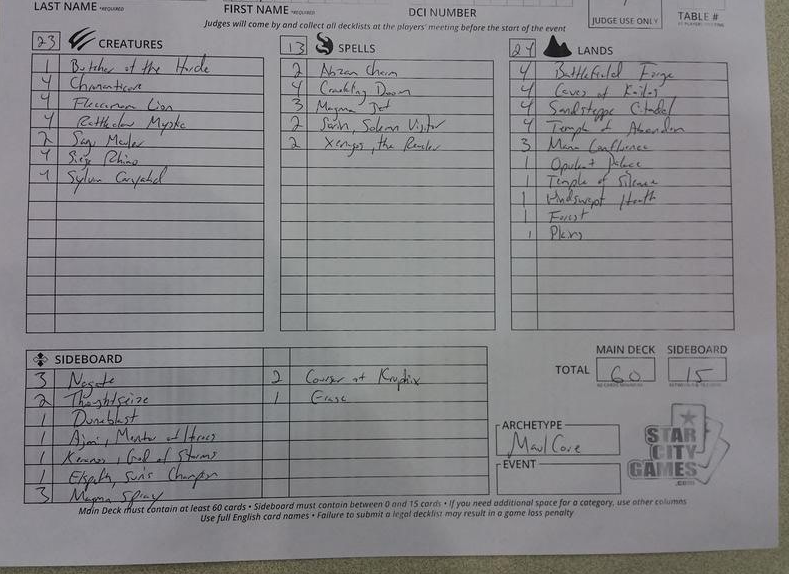
I’ve miscounted my deck several times. Even when I add up the numbers two
or three times, I have sometimes still come up with 40 or 60 cards when
there were in fact 39 or 59. Getting a second pair of eyes to glance over
your tally of cards helps to prevent deck misregistration.
Even if it’s the person across from you during the player meeting, it’s
better that you let one person in the room look over your decklist as
insurance against a possible future game loss.
Of course, when someone is checking over your decklist you should do the
same with theirs if they’d like.
Verbally Communicate The Match Result
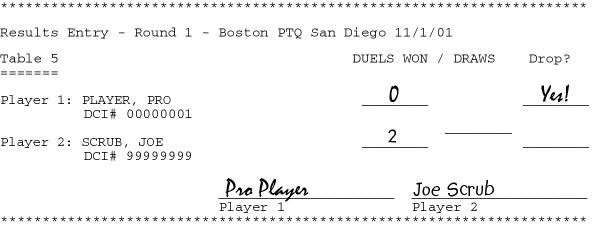
Match results entered incorrectly are very difficult to remedy.
I check the match result on the slip three or four times before
turning it in. You really only need to do it once as long as you
communicate it to the scorekeeper or judge if they’re willing to take the
result slip for you. They’ll look at the slip and confirm the result with
you.
Leave Phones At The Table
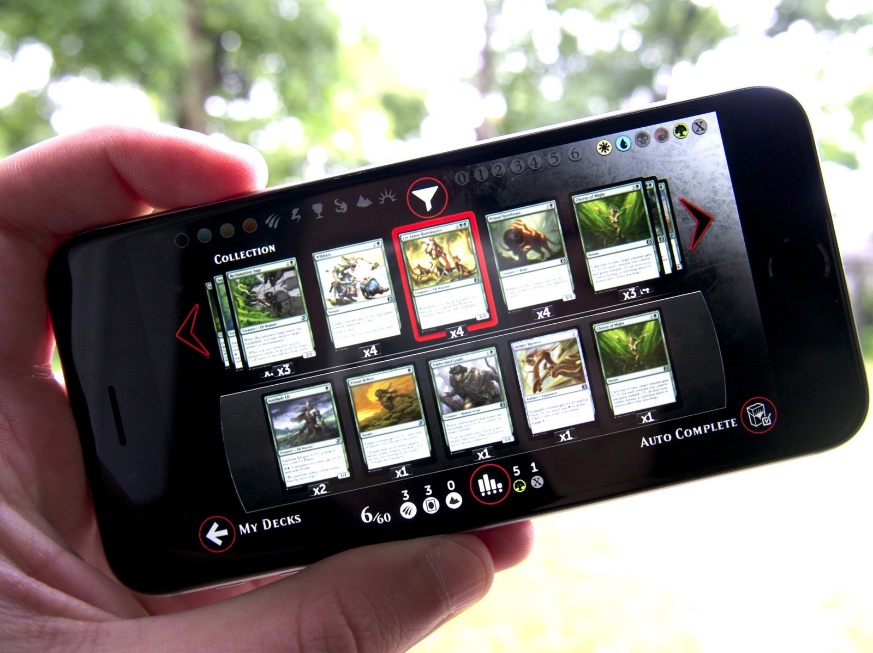
While this may go against the idea of closely monitoring your belongings,
it’s proper etiquette to leave your phone at the table during a match if
you need to leave, say, for a quick bathroom break. I ask my opponents to
leave their phone behind when they need a bathroom break and have had each
of them understandably agree.
If your opponent has had a camera feature match, it’s possible to look up
the video to see what they’re playing. While I don’t believe that people
commonly do this, it’s best that things are kept above board and people
aren’t left wondering.
A judge will likely stand next to the empty seat waiting for the player to
return from their break and ready to issue a time extension. Your phone
will be well monitored. If you’re uncomfortable leaving it on the table,
ask a judge to hold onto it.
Watch Your Opponent While Shuffling
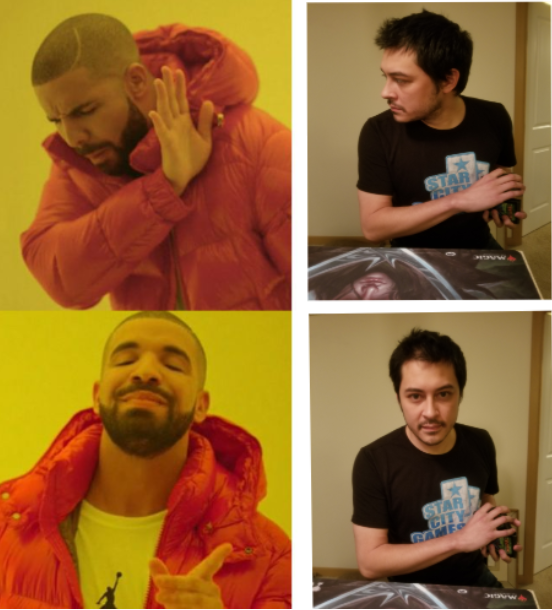
After I present my deck to my opponent before a game (and they do the same)
I don’t look down at my hands, nor to a look to the opposite direction of
where I’m shuffling. I watch my opponent’s eyes and the position of my deck
while they’re shuffling it.
Many players exaggerate the degree by which they avoid looking down at the
deck they’re shuffling by looking at the complete opposite direction of the
bottom of their opponent’s deck. This is unnecessary. Watch where your
opponent is looking!
That’s all for today. If you have tips to protect yourself and game’s
integrity during tournaments, let me know in the comments below!

